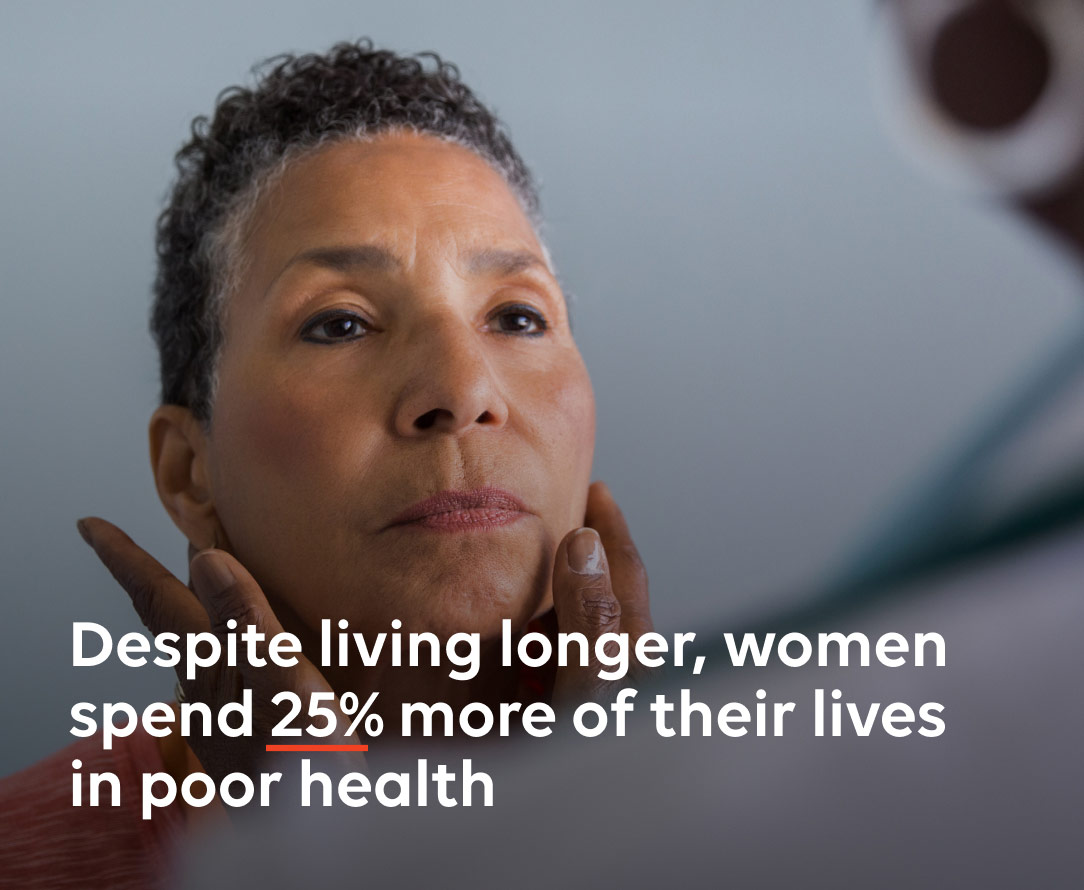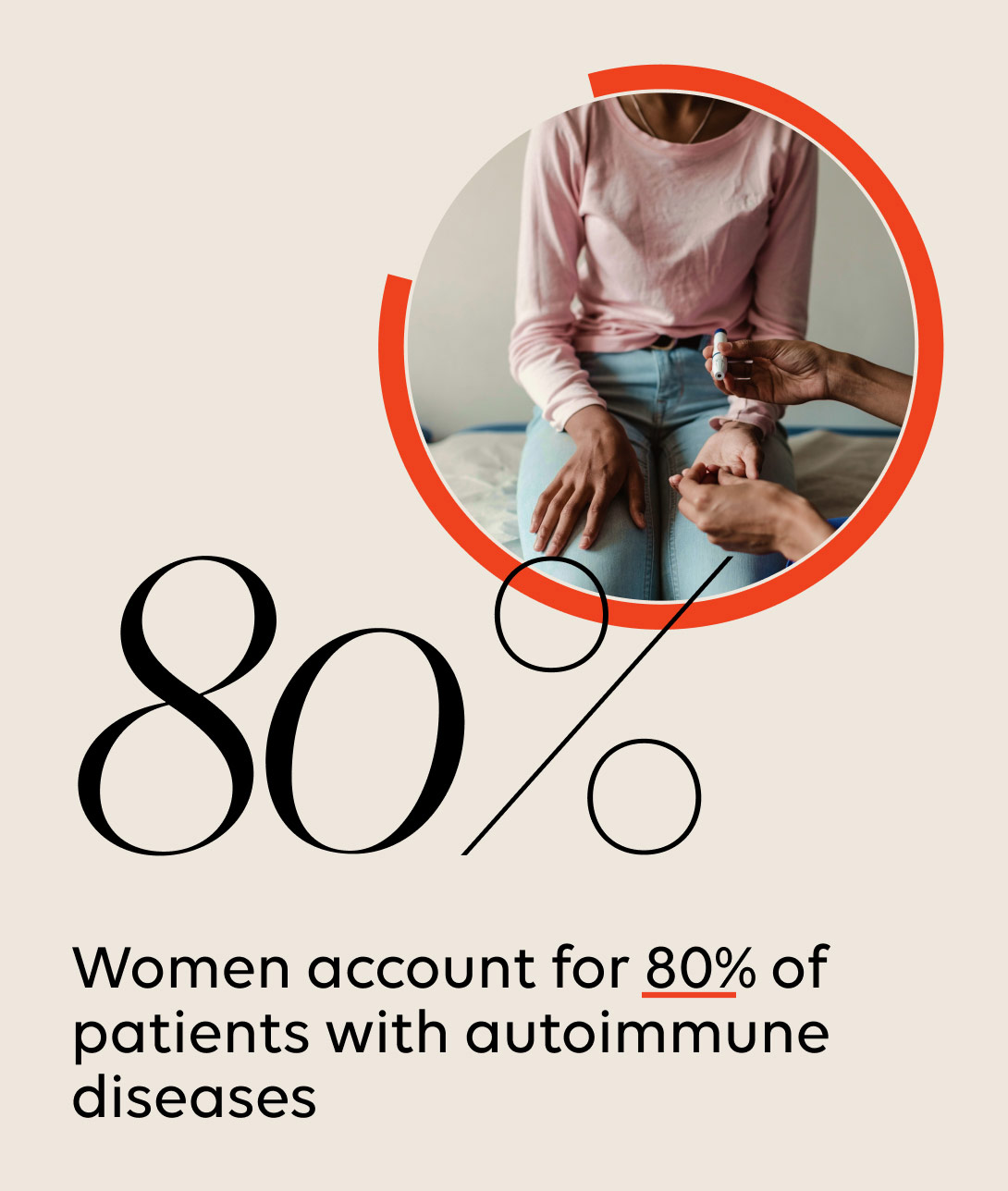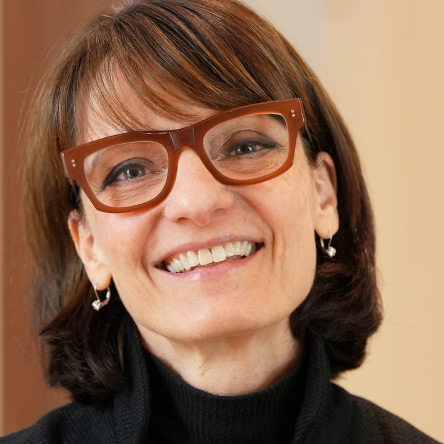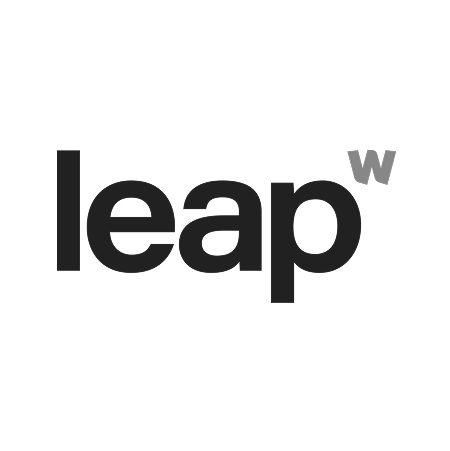It’s Time for Breakthroughs in Women’s Health. Women Have Waited Long Enough.

Courtesy of Portra/Getty Images
A note from Melinda:
Globally, women spend on average 9 years of their lives in poor health— that’s 25% more compared to men.1Closing the Women’s Health Gap: A $1 Trillion Opportunity to Improve Lives and Economies | World Economic Forum in collaboration with the McKinsey Health Institute The reason why couldn’t be more obvious: The world has never made women’s health a priority.
Science and medicine have a long history of treating men’s bodies as the default and women’s bodies as an afterthought. As a result, the health issues women face are chronically underfunded and catastrophically under-researched.
The good news, and there is good news, is that it doesn’t have to be this way. There are solutions at our fingertips—new tools, diagnostics, and treatments that could benefit women everywhere in the world—if only we’re willing to reach for them.
That’s why I’m excited to announce that Pivotal and our new partner, Wellcome Leap, are committing $100 million to accelerate much-needed breakthroughs in women’s health R&D. With Wellcome Leap’s proven model, we expect to see life-changing, lifesaving outcomes years—even decades—sooner than we would otherwise.
Read on to learn more about how Wellcome Leap CEO Regina E. Dugan, who was the first woman to run the U.S. Defense Advanced Research Projects Agency, is leading the charge to prove that rapid progress on women’s health is not only possible—it's already within our grasp.
Melinda French Gates
Philanthropist and Founder, Pivotal
In the time it will take you to read this sentence, a woman somewhere in the world will have needed a blood transfusion because of abnormal menstruation. Before you finish this paragraph, another baby will be stillborn. And by the end of the day, countless women will have endured symptoms of conditions like Alzheimer’s, cardiovascular disease, or autoimmune disorders—conditions that are under-researched, under-diagnosed, and under-treated—because women’s health has never been prioritized the way it should be.
I have been honored to spend my career leading extraordinary teams in the pursuit of seemingly impossible goals. As the first woman to run the U.S. Defense Advanced Research Projects Agency—DARPA—I had the great privilege of greenlighting programs that mattered in ways we could not yet fully imagine. One of them was a bold bet on mRNA vaccine research—made a decade before COVID-19—which became the foundation for creating new, desperately needed vaccines in record time. Later, at Google and Meta, I had the chance to build advanced technology teams charged with turning radical ideas into real-world capabilities. And today, as CEO of Wellcome Leap, I am privileged to be part of a global organization founded to bring that same urgency and ambition to the advancement of human health. Much of that work is focused on one of the most neglected frontiers of science: women’s health.
We start from a truth that should trouble us all: Women experience health issues differently, disproportionately, and uniquely. Despite living longer, women spend 25% more of their lives in poor health.1Closing the Women’s Health Gap: A $1 Trillion Opportunity to Improve Lives and Economies | World Economic Forum in collaboration with the McKinsey Health Institute Cardiovascular disease is the leading cause of death for women worldwide, yet it is still too often thought of as a "man's disease"—and frequently misdiagnosed or missed entirely when the patient is a woman.2Representation of women in heart failure clinical trials: Barriers to enrollment and strategies to close the gap | American Heart Journal Women account for 80 percent of patients with autoimmune diseases, yet treatments are rarely designed with them in mind.3Scientists found a major clue why 4 of 5 autoimmune patients are women | Washington Post Two-thirds of Alzheimer’s patients are women, and we still cannot explain why.4Women and Alzheimer's | Alzheimer’s Association Every 16 seconds, a baby is stillborn, and forty percent of those deaths involve problems with the placenta—an organ we know astonishingly little about, despite its central role in sustaining life.5One stillbirth occurs every 16 seconds, according to first ever joint UN estimates | World Health Organization 6An In-Depth Analysis and Classification of Placental Causes of Stillbirth: A 10-Year Retrospective Study of a Regional Stillbirth Registry | BJOG: An International Journal of Obstetrics & Gynaecology
Women experience health issues differently, disproportionately, and uniquely.


These are not minor gaps. They are chasms in our knowledge, created and perpetuated by decades of underinvestment. Only 8.8 percent of the U.S. National Institutes of Health budget from 2013 to 2023 was devoted to women’s health research.7NASEM Releases Report Assessing Women’s Health Research at NIH | Society for Women’s Health Research In 2024, only 7 percent of pharma’s R&D was focused on conditions that exclusively affect women; with less than 1 percent invested in conditions beyond women’s cancer.8Policy Recommendations for Women’s Health Research | World Economic Forum in collaboration with the Global Alliance for Women’s Health, Kearney and the Gates Foundation Without deliberate action, the pace of progress will remain intolerably slow, and millions more women and girls will suffer needlessly.
At Wellcome Leap, we aim to change that trajectory. Our mission is to deliver breakthroughs in human health not decades from now, but in years. To do it, we have adapted the DARPA model for a global, philanthropic context—an approach that begins with a bold, use-inspired, measurable goal, assembles the best minds in the world to achieve it, and drives toward the outcome with speed and urgency. At DARPA, that model yielded advances that reshaped industries and societies. At Wellcome Leap, we are proving it can do the same for global health.
When we launched our In Utero program, for example, we set out to cut stillbirth rates in half by creating scalable ways to measure, model, and predict gestational development. Doing so could save more than a million lives every year. Within one hundred days, we had assembled a global network of scientists and clinicians. And within 2 years, that team had line of sight on a maternal blood test capable of predicting conditions that lead to stillbirth—such as fetal growth restriction, gestational diabetes, and pre-eclampsia—with more than 80 percent accuracy—as early as twelve weeks into pregnancy. We've been missing this kind of predictive power for far too long. It means that, in the near future, we can imagine giving a primary care doctor in America and a community health worker in Uganda the same ability to identify high-risk pregnancies early, intervene appropriately, and save lives.
This is what happens when you treat women’s health as a frontier for innovation rather than an afterthought. You frame the problem differently. You build teams differently. You move ideas from theory to reality faster than conventional systems would ever allow. And you measure success not in inches, but in leaps.
Today, Wellcome Leap has invested $150 million across three major programs aimed at transforming outcomes in women’s health—and we are just getting started. That is why we are proud to join forces with Pivotal, a group of organizations founded by Melinda French Gates, to commit an additional $100 million to new programs in women’s health research, bringing our total to $250 million. Pivotal recognizes—as we do—that the time for incrementalism is over. Their commitment will allow us to expand our work into new areas where the neglect has been deepest and the potential for breakthroughs is greatest.
Changing our approach to women’s health is a moral imperative. For too long, women have been told to endure what should be treatable, to normalize pain and disability that could be prevented, to accept conditions as “mysteries” rather than problems worth solving. Behind every statistic is a person whose life could be fuller, freer, and longer if only we had invested the attention and resources earlier. And so we must. We need more breakthroughs, and we need them faster. I have seen firsthand what happens when we do invest. I have seen how ambitious, emotionally invested teams with clear goals can overcome obstacles, collapse timelines, and deliver solutions once thought impossible. Breakthroughs in women’s health are not a matter of chance—they are a matter of choice.
"Behind every statistic is a person whose life could be fuller, freer, and longer if only we had invested the attention and resources earlier. And so we must."

My hope is that other leaders across philanthropy, government, and the private sector, will help us make the advances women need by pooling our resources and collectively focusing our efforts to deliver results. Reaching the scale of impact women deserve will take more of us. It will take a coalition of leaders willing to commit at the level the problem demands. And a sense of urgency. At Wellcome Leap, we have the model, the network, and the readiness to put new resources to work on a global scale within 100 days. And the range of problems we could potentially solve is vast.
I have been fortunate in my career to lead extraordinary teams that made a difference in national security, technology, and health. I have watched ideas become innovations that changed the way people live. But I believe the work we are doing now—this effort to deliver breakthroughs in women’s health—is among the most important of my life. It is a chance to correct a historic wrong, to close a gap that should never have existed, and to honor the dignity of half the world’s population by giving us the science, the medicine, and the care we deserve.
Many have raised awareness. Now we must raise expectations. So join us. Because the question is not whether we can make the next decade one of extraordinary progress in women’s health. The question is whether we will.
It’s time. Women have waited long enough.
About Wellcome Leap

Wellcome Leap is a billion-dollar breakthrough engine for human health – at global scale. Founded by the Wellcome Trust in 2020 as a U.S. nonprofit, Wellcome Leap builds and executes bold, unconventional programs with the urgency required to deliver breakthroughs in years, not decades. Operating at the intersection of life sciences and engineering, Leap programs require best-in-class, multi-disciplinary, global teams assembled from universities, companies, and nonprofits working together to solve problems that they cannot solve alone. For more information, read how Wellcome Leap is Changing the Business of Breakthroughs and visit www.wellcomeleap.org.





















